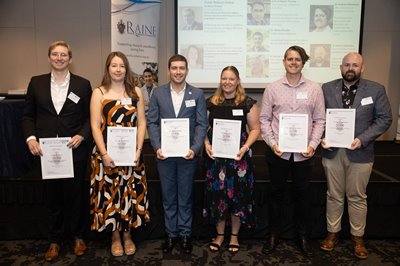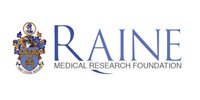Post-doctoral researcher, Dr. Andrew Stevenson, began his career at 23 years old at the Burn Injury Research Unit in 2009 as a research assistant. Driven by a deep interest in cellular biology and regenerative medicine, he pursued a PhD, focussing on 'The Epigenetics of Scar Cells'. Completing his PhD in 2016, Andrew progressed to a postdoctoral role, where he has significantly contributed to several key projects, including his ongoing work on scar cells, collaboration in the development of one of the first anti-scarring drugs reaching clinical trials, and his involvement in pioneering 3D bioprinting techniques for surgical applications.
Throughout his time with the team, he has authored 19 scholarly articles, notably publishing his PhD research as the lead author in the Journal of Investigative Dermatology, the premier dermatology journal of 2022. Additionally, his contribution to the pre-clinical studies on scar treatment earned him a third-author position in Nature Communications, a journal renowned in the fields of Biochemistry, Genetics, and Molecular Biology in 2022.
As a representative of the Fiona Wood Foundation, he has been invited and showcased his research at numerous national and international forums, delivering presentations in cities like Boston, Tokyo, Melbourne, Sydney, Adelaide, and Brisbane. His presentations have facilitated valuable knowledge exchanges within the scientific burn community.
Dr Andrew Stevenson Awarded Raine Priming Grant
We are excited to announce that Andrew has been recognised by the Raine Medical Research Foundation for his exceptional contributions as an early career researcher. In honour of his scientific excellence and potential as a future leader in medical research, he has been awarded the prestigious Raine Priming Grant.
This grant will fund Andrew's innovative study, 'Developing Next Generation Cell Therapies for Enhancing Skin Regeneration after Injury.' This innovative project aims to combine fundamental science with practical applications to enhance the globally used ReCell ('Spray-on-skin') treatment for burn patients. The use of a novel magnetic technique to isolate harmful cell types, along with the addition of beneficial proteins, could significantly improve the efficacy of ReCell. Such advancements have the potential to revolutionise burn care and recovery, leading to faster, more effective healing of wounds and substantially better scar outcomes.
The Foundation would like to congratulate Andrew on this well-deserved recognition, with the Raine Award signifying a terrific milestone in his research career. His pioneering work holds immense potential to redefine current approaches in burn care excellence by improving treatment efficacy and patient recovery. We will keep our community updated as the project progresses!

